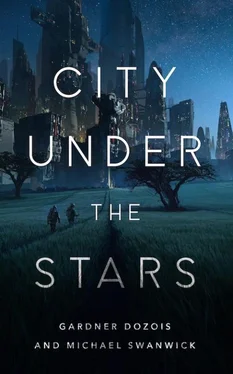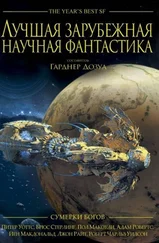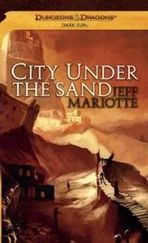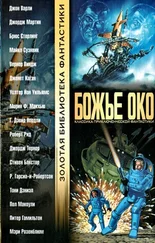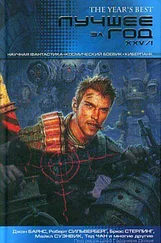With luck, Hanson had until the morning, maybe until noon, to get out of Orange. When Oristano missed tonight’s inspection tours, it would be assumed that he had taken too much dope, or drank too much whisky, and was sleeping it off in his office behind locked doors. It had happened before; nobody would think too much of it, nobody would dare try to wake him up. Probably nobody would begin to wonder until sometime tomorrow. Then they would try to wake Oristano by knocking, try again, and eventually someone would have the guts to go find a master key and investigate. Maybe noon, maybe not.
And where was he supposed to go ?
Nowhere on foot, that had been certain. Even dazed, he retained that much logic. The nearest village was Garfield, thirty miles away, and that hardly more than an SI garrison to maintain an old stone bridge over the Passaic. Too far, in one sense, over dangerous ground, alone. Not far enough , quick enough, in another sense. It was unlikely they’d bother to search that far afield for him, but if they did he’d be finished: only one usable road to Garfield, only two roads out of Garfield north, and more than thirty miles to the next village—he could be easily run down by mounted men, who just might check Garfield because it was the obvious place for a fugitive afoot to go. And once he started out on foot, he’d stay on foot. Orange was the only place within a hundred miles where he might be able to find an alternative to walking.
And so he’d gone to the Docks, and his luck had held. There had been four caravans loading up at the land-docks, in spite of the heat and the late hour—the Docks were the deep-beating heart of the city’s commerce, of its life, and they never shut down. Three of the caravans were hauled by the clumsy, potbellied steam-tractors, all pig iron and pistons, boisterous and bellowing. The fourth was headed by a sleek Utopian transport, an untarnishable, indefatigable giant of high steel, twelve feet tall by thirty feet long, more than four hundred years old and still running as smoothly and perfectly as an engineer’s dream, running continuously for all of those four centuries without need of refueling or repair—magic. It had been built long before the creation of the ancient and venerable Government of the State of York, and it would probably be around long after the State had guttered and died, maybe even after there were any men left in the dwindling world to run her. But now, in the haunted interregnum of Earth, she was captained by Johann Willis and headed north this trip, to the Stabilities of Portland. And Johann Willis was an acquaintance of Hanson’s. Not a close friend, but an acquaintance, and an occasional drinking companion—and the uncle of Hanson’s dead wife, Hanson’s Becky, down and dead in the flinty soil of York for more than four years. That was a blood-bond between them. Maybe it would be enough.
They reached the bottom of the slope and turned right, paralleling the open, ceramic-lined sewage trench that ran down the middle of Canal Street. The transport lurched as the road changed from worn cobblestone to thigh-deep mud, then its massive treads found traction and it steadied—the clumsy steam-tractors sometimes foundered in the rutted morasses that passed for streets in this section of summer Orange, but the ancient transport was nearly unstoppable. It wallowed ponderously along Canal Street, throwing a wake of mud on either side. Dense clouds of mosquitos and stinging black flies rose up out of the mire at the transport’s approach, and settled again, swirling and buzzing angrily, when it had passed. Hanson swore irritably and slapped at his face; almost immediately, he was bitten again, on the back of his hand and then on the neck. Brigault, the Mate, grinned at Hanson from his position on the broad spine of the transport—he was wearing a hood of fine-meshed netting, and heavy black leather gloves in spite of the heat. “A bitch, a’n’t it?” Brigault shouted jovially over the pounding of the engines. “But you gots to get flies, ai ? The whole place is made out of shit!” The Mate grinned at Hanson again, enormously, revealing a mouth crowded with crooked, broken snaggleteeth. Brigault seemed to be having a fine time. And another two flies bit Hanson.
Dispiritedly, Hanson pulled his head as far into his coat as he could, like a turtle. It was, if possible, even hotter here than it had been on the Hill, and the stench alone was almost enough to knock a man down and kill him: offal, carrion, endless middens of hundred-year-old garbage, raw industrial sewage running through the Ditch, rank and sulfurous clouds of chemical smoke drifting downwind from the factories on Industry Hill. This was the center of the Bog, the Valley, the Sink, whichever you wanted to call it—the cancerous, ulcerated underbelly of Orange, the nadir of a city where even the rich had never risen too very far above subsistence. Rickety, narrow buildings lined Canal Street by the hundreds, rearing precariously up on either side of the open sewage trench, the Ditch, like rheumy, arthritic animals who had come down to drink of the foul water before they died. Some of these hovels were nine or ten stories high, and none of them were wider across the base than the width of a single room. They were made of mismatched wooden beams, bricks, paving-stones, all stuck together with clay and mud and mortar any way they would hold—some of them were so unsteady that they had to be propped up with poles braced in the ground, and all of them would sway and totter sickeningly in any kind of a wind. There was seldom even a handsbreadth of space between one structure and another, and many actually did lean against their neighbors, so that if a building did finally collapse, it usually took two or three others with it. No matter: a horde of homeless people and “contractors” would swarm through the rubble, strip—and sometimes eat—the corpses, and salvage what building materials they could. Within a few weeks, new buildings would have been raised under the brutal direction of the “contractors,” cannibalized from the debris of the fallen, and people would be bribing and murdering with total ruthlessness to obtain the privilege of inhabiting them. This had been going on for hundreds of years, and it was doubtful that any building in the Bog had survived intact; they all toppled down into junk and were reassembled out of that same junk, over and over again, like shabby phoenixes. Every decade or so, a fire would rip through the Bog and destroy huge swaths of it, followed inevitably by Plague, a year or two later. But the Bog was indestructible—it would eat a little deeper into Blackstone, transforming the swallowed sections into the Bog; building materials would be found somewhere, somehow, and the hovels would rise again. And soon everything would be just about the same as it had ever been.
This had been my life, Hanson thought numbly, staring into the depths of the leprous warrens. A little bit better, perhaps, but not much. Blackstone instead of the Bog. Malnutrition instead of outright starvation, lingering sickness instead of immediate death. At least a pretense of a roof over his head, although some winters he’d wondered if it could be much colder even out on the street. A difference only in degree, not in kind. That was what he had bought with his youth, with his life. With Becky. And always the underlying threat of the Bog, of a fall into the Bog. Inevitable, waiting for all of them when they could no longer work hard enough to keep themselves out of it. In the end, all roads led downhill to it, to the Bog.
There was a fresh corpse floating in the Ditch, and he watched it bob and swirl with the current until, just before it was too far behind to see, two men with a travois fished it out of the water.
Ahead, the crowds became denser. The transport slowed, slowed again, almost—but not quite—coming to a stop. It inched through the muck, ponderous and irresistible. The crowd parted reluctantly around it—sometimes a man would wait until the giant treads were almost touching him before his courage broke and he foundered out of the way, slipping, falling, rolling. And then he would climb up out of the mud—plastered and stinking with it, rubbing it out of his eyes—and spit at the transport, or shake his fist. Hanson could see mouths moving in the crowd, teeth bared, men grinning with hate; he could hear shouts and obscenities, rising thinly above the sound of the engine. Someone threw a clot of mud that spattered against the deckplates; another. These were the dregs of the Bog: lobos, offenders whom even the casual butcher that was State justice found too unimportant to kill; homeless and unregistered children; junkies; gene-scrambled sports; decrepit whores; the infirm, the aged, the blacklisted—all those who couldn’t work, or were not allowed to. They lived like wild dogs, on garbage, on what they could steal, on each other. They slept in the street, on the steps of the shanty homes of the more fortunate poor, in alcoves, under bridges. By the thousands. And every winter they died, by the thousands. And every spring there was another thousand, or two, to replace them—filtering down, no longer able to hold even a place in the middle terrace of Bog society. Their despair was a tangible pressure, black as coal; the heat crushed it into hate, diamond-bright, diamond-hard hate, tight and dangerous, gave it something to work on. There was a solid wall of men a few yards in front of the transport, and they did not look like they were going to move. Some of them were holding knives, some clubs, some torches, and their faces made the flesh crawl around Hanson’s stomach and groin. Suppose one of them had a bow, or a javelin, or a scorpion—
Читать дальше
